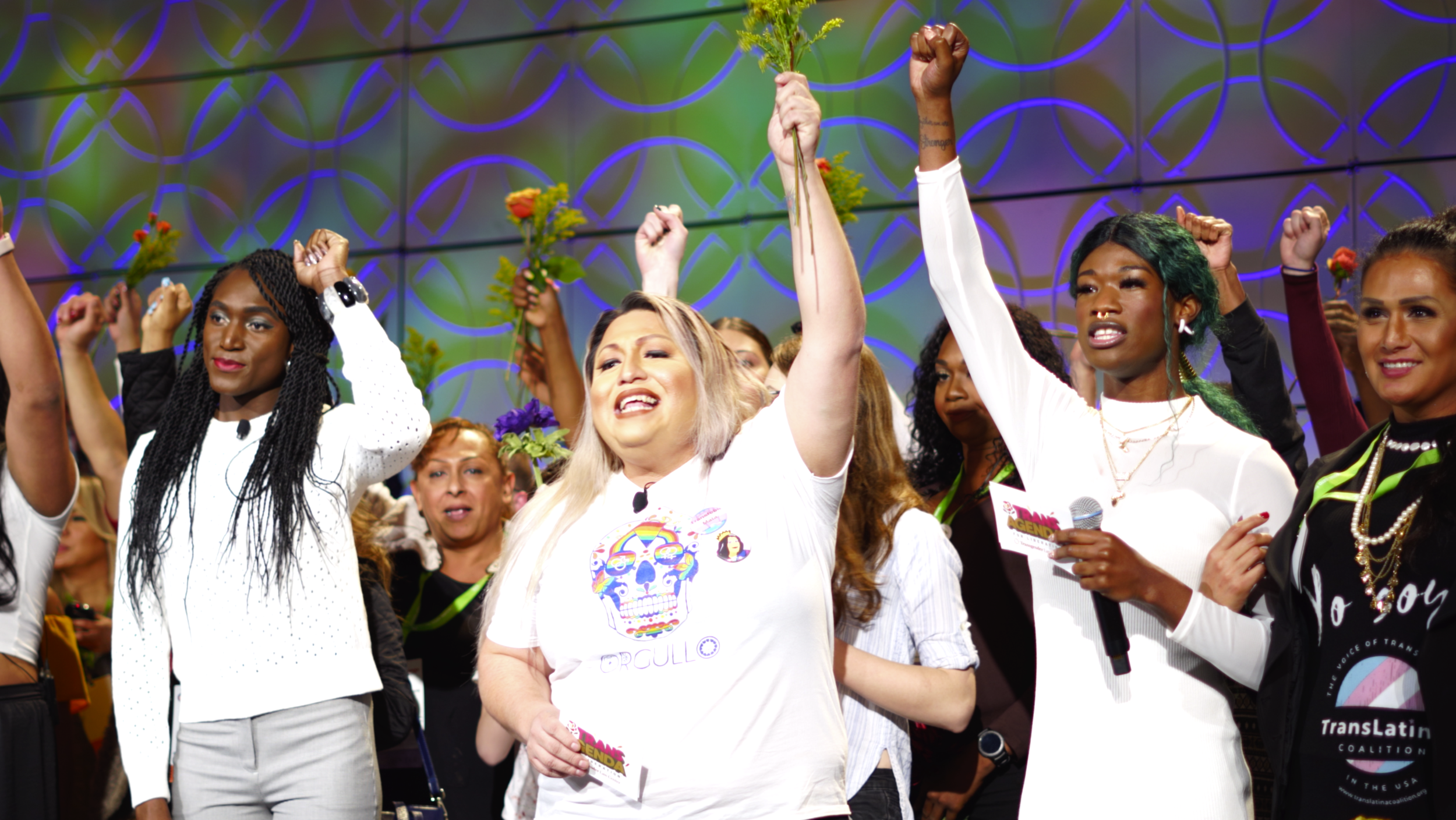“Stay Diligent, Stay Strong.” A Leader on Trans Rights Urges Funders to Ramp up Support
/Trans advocates raise their fists. Image via Transgender Law Center.
The verdict is in: Despite decades of ignorance, discrimination and outright hatred, transgender people are finally gaining acceptance and civil rights in American society—and even a role in President Joe Biden’s White House. There’s still a long way to go, however, and some on the right are renewing their attacks at the legislative level, which makes the persistent lack of funding for trans issues all the more troubling.
“It is still true that there’s very little funding moving to trans-led organizations,” said Kris Hayashi, executive director of the Transgender Law Center, in a recent interview with Inside Philanthropy. “It’s an incredibly small amount, and if you tried to pull out the amount that’s going to Black trans-led organizations, that’s going to POC-led trans organizations, it would be even smaller.”
Hayashi points to a special report published in 2015 by Funders for LGBTQ Issues that found trans communities only receive one penny per every $100 of foundation funding. Funding has increased in recent years, but that figure is still only in the pennies.
Organizations like TLC, which Hayashi has led for the better part of the last decade, have achieved greater levels of visibility (and, of course, larger donations) than many others. Both because of its vision of collective liberation and its focus on racial equity—especially in light of the unique and terrible dangers faced by Black and brown trans communities—the group is now focusing part of its attention on encouraging people to support smaller organizations led by trans people of color.
Hayashi is also challenging the philanthropic community at large to give more to trans-led organizations, and Black and brown trans-led organizations in particular, in spite of the sense of safety that comes with a more trans-friendly White House.
“What I worry about under the Biden administration, under an administration that is vastly less hostile, is that there will be a rollback in support, that there will be a sense of safety, to some extent, that foundations feel communities have that is just so far from true,” he said.
To illustrate this point, Hayashi pointed to the anti-trans bills that have been introduced in Montana, North and South Dakota, and other states, many of which seek to restrict the rights of trans children from playing sports in schools or even, in the case of Alabama, forcing schools to out them to their parents.
“The right-wing and white supremacist forces that made the Trump administration possible are still there, and they are still building, as they have for years,” said Hayashi. “And so we really need to stay diligent, stay strong, and learn from the last year, learn from the past four years, about what philanthropy can do that can be amazingly resourceful to organizations that are really on the front lines.”
One of TLC’s biggest priorities during the Biden administration is pushing the White House and Congress leftward in attempts to defund police and prisons. The organization is also calling for an immediate end to trans detention in prisons, jails and migrant centers—all of which are dangerous for trans people, and doubly so during the COVID-19 pandemic. (You can read more about TLC’s current agenda over at Blue Tent.)
While Hayashi cautions against becoming complacent, he does point out some positive shifts underway in the funding world. He sees the growing trend of funding Black-led movements as one that already has and will continue to benefit trans communities.
“We’ve seen in particular over the last year the philanthropy community really move forward and deepen its commitment to racial equity, its commitment to supporting Black-led organizations and movements, to supporting communities who have been most impacted during the pandemic and during the Trump administration overall in the past year of uprisings,” he said.
The historical under-funding of trans groups made communities uniquely vulnerable to the attacks that came during the Trump administration, Hayashi said. Now, with more attention being paid to trans communities than ever before, trans-led groups can begin the hard work of healing and looking toward a future when trans people can access all human rights as readily as their cisgender counterparts.









